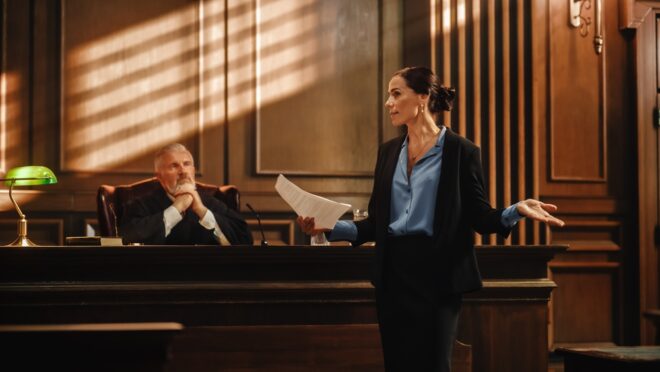

Call Attorney Marni Jo Snyder 24 Hours / 7 Days:
215.515.3360
When a loved one is convicted of a crime, the process can feel overwhelming and uncertain. However, the criminal appeals process offers a path to challenge potential legal errors that may have affected the outcome of the trial. Unlike a new trial, an appeal does not involve re-examining evidence or calling new witnesses. Instead, appellate courts focus on whether the trial court applied the law correctly and preserved the defendant’s constitutional rights.
For families in Philadelphia, understanding the local court system is critical. Many serious criminal appeals in the city move through the Philadelphia Court of Common Pleas at the trial level and then to the Pennsylvania Superior Court, which handles most appeals. In rare cases, issues may be escalated to the Pennsylvania Supreme Court. Knowing how these courts operate and what deadlines apply is essential for supporting your loved one through the appeal.
The main goal of a criminal appeal is to ensure that the defendant received a fair trial. Appeals do not revisit the jury’s verdict or reweigh the evidence. Instead, they assess whether legal errors—such as improper jury instructions, admission of inadmissible evidence, or misapplication of the law—may have influenced the outcome.
Advice for families: Encourage your loved one to remain patient. Appeals can take months or even years in Philadelphia, especially when cases move from the trial court to the Superior Court. A clear understanding of the process helps families manage expectations and provide steady emotional support.
For a free legal consultation, call 215.515.3360
Several issues can form the basis of an appeal:
Not every error leads to a reversal—only mistakes deemed significant enough to have impacted the jury’s decision.
Advice for families: Gather and preserve trial-related documents, including transcripts, motions, and court notices. Providing these materials promptly to a Philadelphia appeals attorney can help strengthen their ability to identify viable grounds for appeal.
The first formal step in the appeals process is filing a notice of appeal with the trial court. In Philadelphia, the rules are strict:
Advice for families: Keep track of these deadlines. Missing them can permanently forfeit the right to appeal. Work closely with your loved one’s criminal appeals attorney to ensure every procedural step is completed correctly.
Appellate courts, including the Pennsylvania Superior Court, primarily review the trial record, which includes transcripts, exhibits, and motions. Attorneys submit written briefs outlining the legal errors and arguments for reversal or modification.
Occasionally, the court schedules oral arguments, where the attorneys can further explain their positions and answer judges’ questions. Most appeals, however, are decided on the written record alone.
Advice for families: Understand that appellate judges do not consider new evidence or personal letters. Your role is to support your loved one and help maintain organized communication with the criminal appeals lawyer handling the case.
Appellate courts apply specific standards to evaluate trial errors:
Advice for families: Not every mistake is sufficient to overturn a conviction. Realistic expectations help families manage stress during the often lengthy appellate process.
The appellate court may:
Advice for families: Stay engaged with your appeals attorney to understand which outcomes are most likely in Philadelphia’s legal environment.
If the direct appeal is unsuccessful, further options may include:
Advice for families: Consult with your criminal appeals lawyer about next steps. The PCRA process in Philadelphia may take around a year, so early planning is important.
Family members play a crucial role:
The combination of a knowledgeable Philadelphia criminal appeals attorney and family support gives your loved one the best chance at a favorable outcome.
If your loved one is facing an appeal in Philadelphia, the Law Offices of M.J. Snyder, LLC can help. Attorney Marni Jo Snyder and her team have extensive experience handling complex appeals in the Philadelphia Court of Common Pleas and higher appellate courts.
Schedule your free consultation to discuss options and develop a strong appellate strategy by calling 215.515.3360 or contacting us online today.
Call 24/7: 215.515.3360
Email: info@snyderlawyer.com
Fax: 215-376-6981
This website is for general informational purposes only. The act of sending an e-mail to the Firm or any attorney at the Firm, or submitting a form response or other materials through the website, will not create an attorney-client relationship. The only way to create an attorney-client relationship with the Firm is through a written agreement.Read More